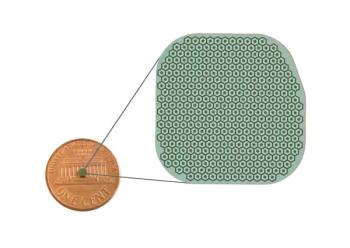
2024 in the rearview: What optometrists learned about AMD
Reviewing new AMD treatments and research can help optometrists prepare for what's to come in 2025.
2024 was an action-packed year for advancements in age-related macular degeneration (AMD) treatments, trials, and research. With the prevalence of AMD projected to continue rising in the coming decades, staying informed on the latest ways to diagnose the disease and slow its progression will remain essential to quality patient care in the field of optometry. Get caught up on what you may have missed with this year’s top content in AMD from Optometry Times.
Stealth BioTherapeutics presents preclinical data on bevemipretide’s retinal delivery in AMD models
Stealth BioTherapeutics Inc. presented new bevemipretide (SBT-272) preclinical data from a study demonstrating topical ocular delivery to the
The data were presented at the Keystone Symposium Targeting Dry Age-related Macular Degeneration: Pathophysiology and Emerging Therapies held September 17-19, 2024, in Pacific Grove, CA. The aim of the study was to evaluate ocular and systemic distribution of topical bevemipretide and its potential protective effects in models of AMD.1
Beyond pharmaceuticals: Slowing the progression of AMD via nutrition
Macular degeneration is now considered to be the leading cause of irreversible blindness and visual impairment in the world. The study titled “The prevalence of age-related macular degeneration in the United States in 2019” found that almost 20 million Americans were living with some form of
Supplements slow disease progression during late stage of dry AMD, study suggests
A team of researchers at the National Institutes of Health (NIH), in a new analysis of data, have found that taking a daily supplement containing antioxidant vitamins and minerals can slow the progression of late-stage dry
According to an NIH/National Eye Institute news release, the researchers examined the original retinal scans of participants in the Age-Related Eye Diseases Studies (AREDS and AREDS2) and found that, for people with late-stage dry AMD, taking the antioxidant supplement slowed expansion of geographic atrophy (GA) regions towards the central foveal region of the retina.1
Ocular Therapeutix accelerates timelines for SOL-1 Phase 3 trial of Axpaxli for wet AMD
Biopharmaceutical company Ocular Therapeutix has announced accelerated timelines for its SOL-1 Phase 3 registrational clinical trial of Axpaxli for wet age-related macular degeneration (AMD).1 The study is now expected to be fully enrolled with all 300 patients randomized by the end of 2024, with topline data now expected during the fourth quarter of 2025, according to a news release. Prior guidance for Ocular Therapeutix was to complete enrollment by the end of the first quarter of 2025.1
Study shows minocycline has no benefit in slowing, preventing GA expansion in patients with dry AMD
A recent study on minocycline showed that the drug has no benefit in preventing or slowing vision loss related to
The study, led by Tiarnan Keenan, MD, PhD, a Stadtman Tenure-Track Investigator at the NEI’s Division of Epidemiology and Clinical Applications, tested whether inhibiting microglia with minocycline might help slow GA expansion and its corresponding vision loss. It was a multi-center, prospective, single-arm, phase II study that enrolled 37 patients at the NIH Clinical Center in Bethesda, Maryland, and at the Bristol Eye Hospital, United Kingdom.1
Newsletter
Want more insights like this? Subscribe to Optometry Times and get clinical pearls and practice tips delivered straight to your inbox.



























